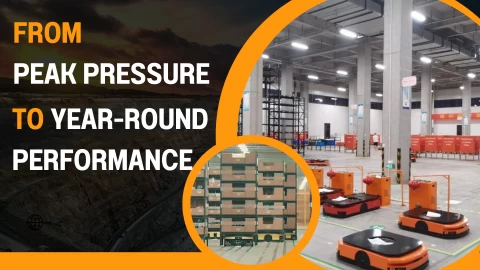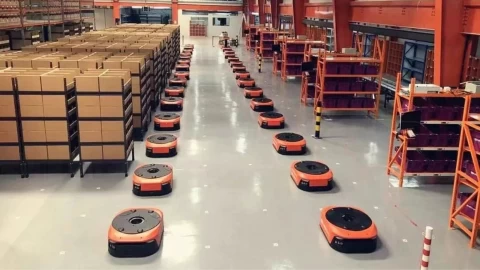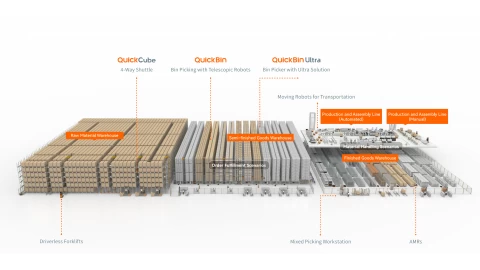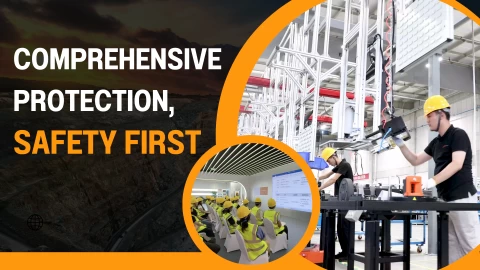Impacts of Mobile Robots on the Workforce
In this blog post, we will explore the profound impact of mobile robots on the workforce, highlighting the benefits, cha...

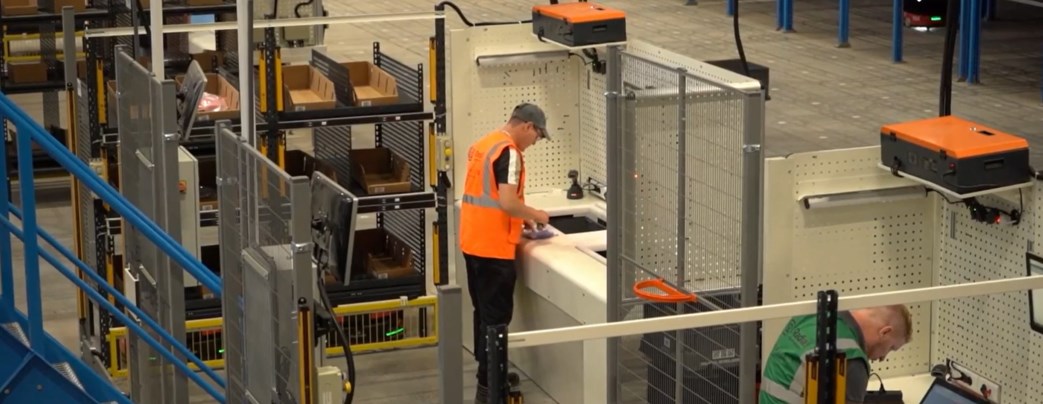
In recent years, the integration of mobile robots into various industries has been transforming the way businesses operate. As automation technologies continue to advance, Quicktron Robotics has emerged as a pioneering force, revolutionizing efficiency and collaboration within the workforce. In this blog post, we will explore the profound impact of mobile robots on the workforce, highlighting the benefits, challenges, and future prospects of this remarkable technological advancement.
Enhanced Efficiency:
Mobile robots have proven to be invaluable assets when it comes to enhancing efficiency in the workforce. A study by PricewaterhouseCoopers (PwC) found that adopting robotics and automation in warehouses can lead to a 10-20% increase in productivity. These robots can perform repetitive and labor-intensive tasks with unwavering precision, freeing up human workers to focus on more complex and intellectually stimulating responsibilities. By automating tasks such as material handling, inventory management, and order fulfillment, mobile robots enable businesses to achieve higher productivity levels, reduced operational costs, and faster turnaround times.
Improved Safety:
One of the most significant advantages of mobile robots is their ability to work alongside human workers, improving overall safety in the workplace. These robots are equipped with advanced sensors and AI algorithms that enable them to detect and navigate around obstacles, ensuring a safe working environment. A study published in the International Journal of Environmental Research and Public Health found that the introduction of mobile robots in healthcare settings resulted in a 78% reduction in staff injuries caused by lifting and handling tasks. By taking over hazardous tasks, such as handling heavy objects or working in dangerous conditions, mobile robots significantly reduce the risk of workplace accidents, thus safeguarding the well-being of employees.
Workforce Collaboration:
Contrary to popular concerns about job displacement, mobile robots actually promote collaboration between human workers and machines. A study by the International Federation of Robotics found that 74% of businesses that use robots report that they have led to increased collaboration between humans and machines. Additionally, a study by the Boston Consulting Group found that companies that use robots are 2.5 times more likely to report increased employee satisfaction.
Rather than replacing humans, these robots complement their skills and capabilities, creating a harmonious synergy within the workforce. By taking care of repetitive and physically demanding tasks, mobile robots allow employees to focus on problem-solving, decision-making, and creativity. This collaboration leads to increased job satisfaction, as workers can leverage their expertise and contribute more meaningfully to the organization.
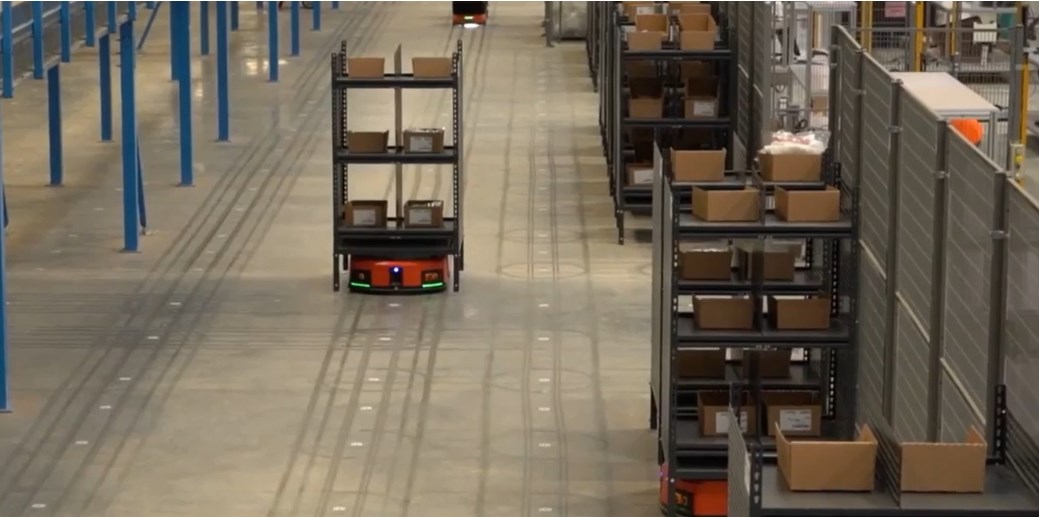
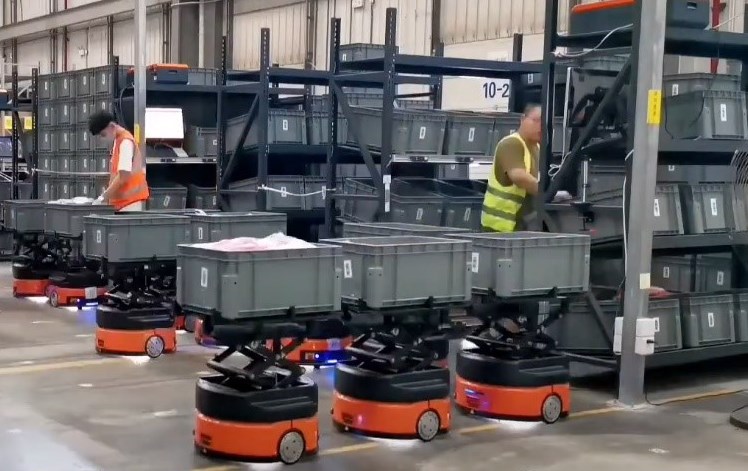
Skills Upgradation:
The integration of mobile robots necessitates a shift in the skill sets required in the workforce. As routine tasks become automated, workers are encouraged to develop new skills and acquire knowledge in areas that leverage human creativity, critical thinking, and emotional intelligence. This drives a continuous learning culture within organizations, empowering employees to adapt and grow alongside the evolving technological landscape. According to a study by Accenture, 84% of executives believe that organizations need to train and reskill employees to work alongside AI. Quicktron Robotics actively supports this transition by offering training programs and resources that enable workers to upskill and embrace new opportunities.

Ethical Considerations and Mitigating Challenges:
While mobile robots offer immense benefits, it is crucial to address ethical considerations and challenges associated with their deployment. Safeguards should be in place to ensure fair treatment of employees affected by automation. Companies must emphasize reskilling and offer support to displaced workers, enabling them to transition into new roles within the organization or new industries altogether. Additionally, ongoing efforts to build trust and transparent communication with employees are vital to mitigate any apprehension and foster a positive work environment.
Conclusion:
Mobile robots have undoubtedly made a transformative impact on the workforce, revolutionizing efficiency, safety, collaboration, and skills development. Quicktron Robotics stands at the forefront of this revolution, empowering businesses to unlock their true potential and achieve unparalleled operational excellence. By embracing our robotics technology, organizations can pave the way for a future where humans and machines work hand in hand, reaping the benefits of automation while nurturing a thriving and dynamic workforce.

Arslan crafts compelling content, executes social media campaigns, and masters online ads, webinars, podcasts, and copywriting. He builds strong relationships with clients, empowering them with support and resources to achieve their sales goals. Leveraging data insights, he refines strategies and collaborates seamlessly to stay ahead of the digital curve.

